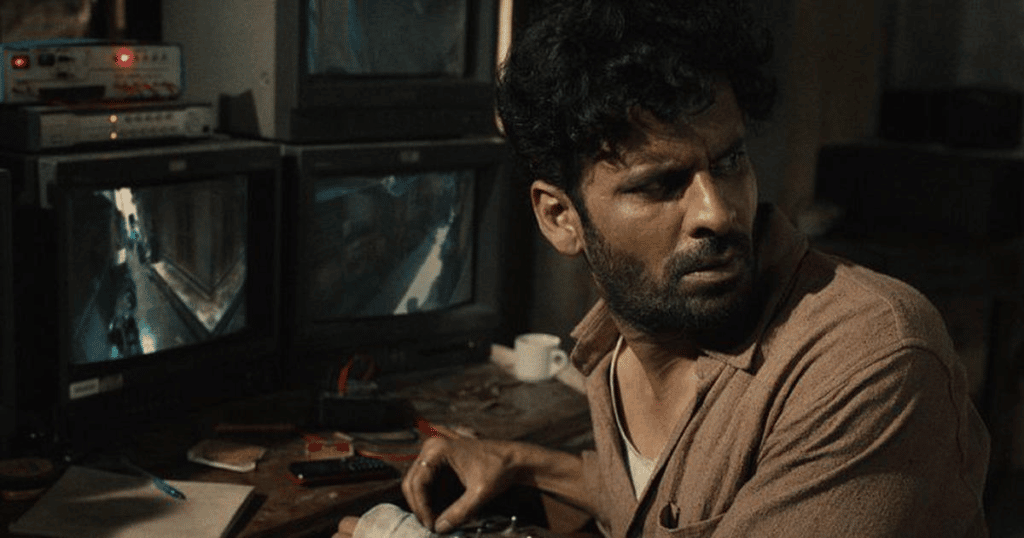
Cast: Manoj Bajpayee,Neeraj Kabi,Shahana Goswami,Ranvir Shorey
Director: Dipesh Jain
Khuddos (Bajpayee) lives by himself in a shabby room full of junk and cobwebs. His surroundings express his state of mind too.
Dark and haunting in many ways, the movie has two parallel threads woven together by a common plot of shattered dreams, broken homes and the need to be heard. It gives you a gruelling picture of what loneliness can do to people.

Bajpayee is Khuddus, whose worry lines, hunched shoulders and inability to make eye contact are reflections of an unnamed trauma in his past. Khuddus is a monomaniacal loner with only one friend, Ganeshi (Ranvir Shorey), who fusses over him as would a mother over a truant child. Khuddus does have a brother, Shaukat (Ashwath Bhatt), but when Shaukat drops by Khuddus’s repair shop, where dust shares shelf space with outdated electrical equipment, it is clear that he isn’t welcome.
Khuddus has a curious relationship with technology. He barely uses his CDMA phone, but has built an elaborate network of closed-circuit cameras in his decrepit mansion to spy on the goings-on beyond his door. In a movie that is all about watching, and looking carefully, Khuddus’s chosen mode of engagement with a world on which he has turned his back becomes clear only much later.

But when he hears the cries of a son being beaten by his father, he jumps to the rescue. The young boy, Idris (Om Singh), shares with Khuddus the habit of peeking into the lives of others, but it isn’t only voyeurism that binds them.
Idris has a loving mother, Saira (Shahana Goswami), but a cruel father, Liaqat (Neeraj Kabi), who is a butcher and from whom Idris seeks permanent escape.
The theme of being trapped in the place of one’s birth and fettered by the invisible chains cast by family ties is reinforced by the estimable camerawork and production design. Cinematographer Kai Miedendrop marvellously captures Chandni Chowk’s unique architecture and spatial layout without ever once slipping into a distressed-but-pretty aesthetic. The frames convey the idea of walls closing in, and the yellow-brown-grey palette is complemented by Sujata Sharma Wirk’s evocative sets and costumes, which create a suitably run-down world in which the present has meshed with the past.
An invisible barrier prevents Khuddus from leaving his neighbourhood, and he is forever lost in its winding streets, where he searched for a boy being harmed by his father and his own scarred self. Khuddus seems to feel no physical pain – a wound on his hand evokes barely any response – but his agony, both real and self-inflicted, is deeply felt. Much is wisely left unsaid, but a whole lot else is also unwisely explained.
In its 114 minutes, the film depends on abstract ideas of memory, redemption and inheritance of loss to tell a story of what is in Khadoos’s head. Bajpayee doesn’t get out of the Khuddus’s zone, and portrays his plight with unerring rigour and poignancy.
Shahana Goswami is this movie’s big beating heart, a bundle of unconditional love and warmth who gives Idris a reason to go from one day to the next. Ranvir Shorey is equally wonderful as Ganeshi, while debutant child actor Om Singh is impressive as the young and troubled Idris.




